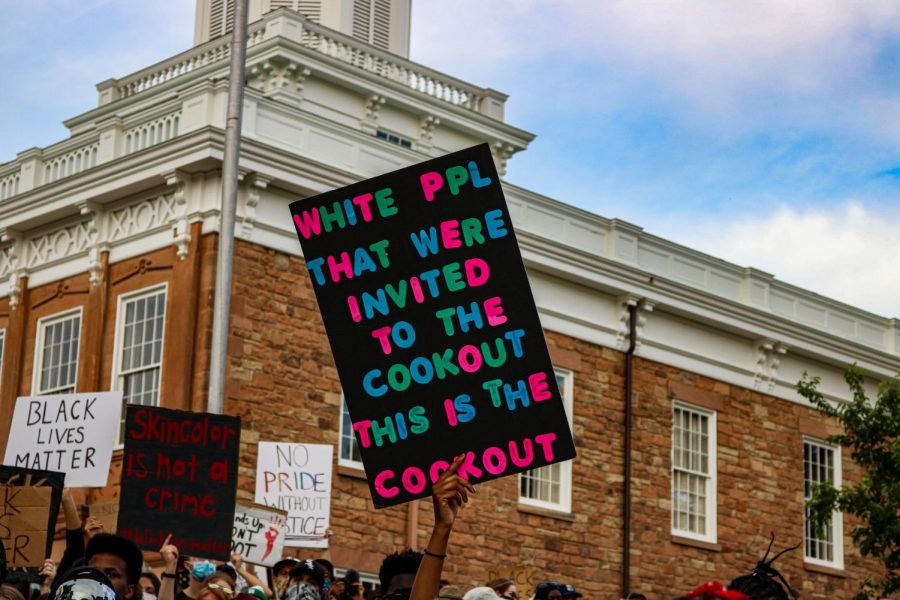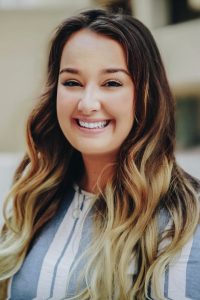Bennion Center Facilitates Community Conversation About Racial Injustice, Allyship
Protestor holds a sign as they listen to speakers at a Black Lives Matter protest on June 4, 2019 in front of the Utah State Capitol. (Ivana Martinez | The Daily Utah Chronicle)
June 23, 2020
On June 23, the Bennion Center joined a host of other organizations in holding a virtual community conversation in order to facilitate a dialogue on the topics of allyship and racial injustice at the University of Utah. The discussion was moderated by Dean McGovern, the executive director of the Bennion Center, as well as David Derezotes, Director Peace and Conflict Studies Program, Holly Johnson, from the Center of Teaching and Learning Excellence, and David Parker, an associate professor in the College of Social Work.
“We thought this would be a good opportunity to start where we are and have a space to share our thoughts and feelings,” McGovern said.
There were roughly 50 participants in the online discussion group, which was made up of U students and community members. The facilitators set ground rules to be respectful of all feelings and opinions. An emphasis was also placed on making the conversation a safe place for people to voice their opinions and discuss feelings of frustration and concern about the current climate regarding racism.
One sentiment echoed by several participants was while they were pleased to see the Black Lives Matter movement gaining momentum, they also feared the momentum would prove to be just a social media trend that already has begun to fade away.
Another opinion voiced was while it’s important to “break out of your bubble” and learn about the systemic racism which is perpetrated in your community and nation, it’s unwise to first approach the people of color in your life in order to educate yourself since this is laborious for them. Instead, it’s best to seek out the abundance of resources that have already been made available.
After this point of discussion, several participants shared examples of these resources to become better allies and more fully understand concepts such as white privilege and white fragility.
One participant said she’d like to see more white people organize with each other to support racial justice. Another shared they had observed most of the people who have been speaking out about structural inequality are minorities, but what is needed now are people in the majority that are allies and are willing to speak out on behalf of people of color.
The concept of white privilege was also discussed by a few group members who saw their own privilege manifested in ways such as choosing not to watch movies that address racism because they weren’t in the mood for a sad movie.
“I’m as racist as anyone on the planet, and I believe I’ve never met anyone that isn’t… So it’s important to have a different relationship with that, instead of just carrying shame which limits my ability to do anything, to just see it for what it is,” Parker said.
Midway through the conversation, the Zoom meeting separated into two breakout sessions – one specifically to discuss white allyship and another to discuss racial battle fatigue.
Racial battle fatigue was coined by William A. Smith — an associate professor in the Department of Education, Culture & Society and the Division of Ethnic Studies at the U. The term describes how people of color can experience real psychological and physiological consequences from having to consistently navigate white spaces and deal with microaggressions.
Points of discussion within the allyship breakout sessions were when and how to speak up about inappropriate comments or topics, the fear of but also being willing to make a mistake and the need to stand up for human rights in spite of feeling uncomfortable.
At the conclusion of the conversation, plans were made to continue the conversation at a later date and to continue facilitating similar discussions.









